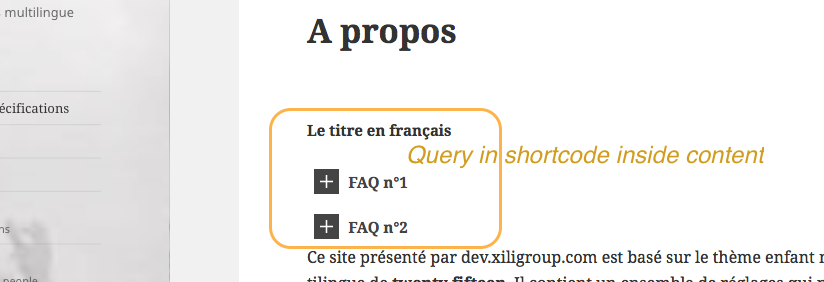The taxonomy is the basis of categories, keywords (tags) and other rankings in WordPress (like language with xili-language trilogy). Since WP 2.3, all key components are found in the file wp-includes / taxonomy.php. WP 4.4 release announces a big change. The developer will seek information in 3 files:
<?php /** * Core Taxonomy API * * @package WordPress * @subpackage Taxonomy * @since 2.3.0 */ /** Core taxonomy functionality */ require_once( ABSPATH . WPINC . '/taxonomy-functions.php' ); /** WP_Term class */ require_once( ABSPATH . WPINC . '/class-wp-term.php' ); /** WP_Tax_Query class */ require_once( ABSPATH . WPINC . '/class-wp-tax-query.php' );
including the new wp-term class that strengthens the previous object describing the terms methodically …
Added to this is the new term meta table that will be very useful to supplement the description of a tag, for example.
It is too early to draw conclusions but Xili-language will continue to take advantage of these new classes, functions and tables.
For now, Xili-language still works;-)
Justin Tadlock has published a comprehensive article for developers.
To still follow (closely) …

